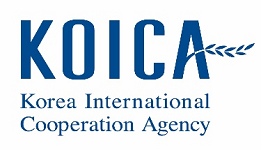Today, the Korea International Cooperation Agency (KOICA) has handed over medical and transportation supplies at a cost of $600,000 (31,076,584 Birr) to the Ministry of Health (MOH) procured by UNICEF to optimize health care for newborns and children in the Benishangul-Gumuz and Afar regions, Ethiopia.
The medical and transportation supplies are part of the project entitled “Optimizing care for newborns and children in Benishangul-Gumuz and Afar regions, Ethiopia,” launched in May 2020. It covers 13 hospitals, 86 health centres, and 516 health posts, in the two regions.
Five zones (14 woredas in zones 1 and 2 in Afar and 23 woredas in three full zones in Benishangul-Gumuz) have been supported and 57,436 pregnant women and newborn babies, and 265,291 under-five children are expected to benefit from this project every year since 2021.
The supplies handed over to the Ministry include 33 types of essential medical equipment, supplies, and medicines for maternal, newborn and child health, and motor motorcycles for the health centres to improve the supportive supervision, mentorship and linkages between the health centres and health posts.
The supply includes continuous positive airway pressure (CPAP), hand-operated neonate resuscitators, oxygen cylinders, neonatal room thermometers, pulse oximeters, midwifery kit/equipment, delivery beds, beds and matters, sphygmomanometer, amoxicillin dispersible tablets, gentamicin injection, zinc, oral rehydration salt (ORS), benzyl penicillin injection, ampicillin injection, Yamaha motorcycles, and other essential supplies are crucial for the survival and thrive of newborns, children and women.
In addition to tailored procurement of these essential supplies, equipment and medicines, the support from the KOICA helps to increase the coverage and quality of skilled care for mothers and newborns during and immediately after delivery, postnatal care, and case management of newborn and child illness; increase newborn and child health service utilization at primary health care level; strengthen the referral linkage for sick newborns and children; and foster ownership of the maternal, newborn and child health (MNCH) program by the public health sector.
Despite the impact of the conflict on the seed and coverage of the project implementation in both regions, so far, through the project:
118 midwives have been trained and mentored in basic emergency obstetric and newborn care basic emergency (BEmONC), including essential newborn care;
198 health workers and 616 health extension workers (HEWs) have been trained on newborn and child health care; and 349 health facilities have received post-training follow-up visits;
152 hospitals and health centres have received the standard catchment-based mentorship;
27 nurses and doctors have been trained in newborn intensive care (NICU) management for sick and small newborn babies;
321 health facilities quality improvement teams have been trained on basic principles of quality improvement (QI);
2449 community members have been trained on the basic principles of QI and;
4802 religious, clans and community elders participated in the community dialogue related to women’s empowerment and improving the service utilization for MNCH.
“The Korea International Cooperation Agency (KOICA) is proud to support the Government of Ethiopia through a strong partnership with UNICEF to optimize health care for newborns and children in the Benishangul-Gumuz and Afar regions,’’ said Ms Sunghee Cho KOICA Deputy Country Director, KOICA Ethiopia Country Office.
“The reduction of newborn and child mortality, and improving their wellbeing is a top priority of the Ethiopian Government as stated in the Health Sector Transformation Plan II. The MOH is aiming to reduce neonatal mortality from 33 deaths in 1000 live births in 2019 to 21 in 2024/2025.
Poor people living in rural and pastoralist areas, and the less educated and illiterate, are less likely to have access to and utilize health services. This support is contributing to addressing equity which is one of the country’s health system challenges,” said Minister of Health, Dr. Lia Tadesse.
“We are extremely grateful for the continued support from KOICA to improve health services for newborns and children,” said Gianfranco Rotigliano, UNICEF Ethiopia Representative. “The supplies being handed over today, and the overall programme funded by KOICA, will contribute to keeping mothers and their children healthy so they can survive and thrive.”
Ethiopia has achieved commendable results in the reduction of under 5 mortality from a very high level of 222 deaths per 1,000 live births in 1990 to 59 deaths per 1000 live births in 2019. Despite this reduction, deaths of newborn babies have remained high, with an estimated 108,766 dying every year and accounting for 55 per cent of all under-5 child deaths (Mini EDHS 2019).
In the Benishangul-Gumuz and Afar regions, the burden of neonatal mortality is much higher than the national average; 61.1% and 38% of under-5 deaths are contributed by neonatal conditions in the first 28 days respectively (Mini EDHS 2019).
The majority of maternal and newborn deaths occur in the first few hours and days following delivery, indicating the importance of access to essential, high-quality prenatal, delivery and immediate postnatal services for all mothers and newborns. Improving the care-seeking behaviours of acute and chronic sick children will reduce morbidity and improve their quality of life.
Optimizing care for newborns and children in Benishangul-Gumuz and Afar Regions, Ethiopia is a five-year project that will be implemented between 2020 and 2024.

